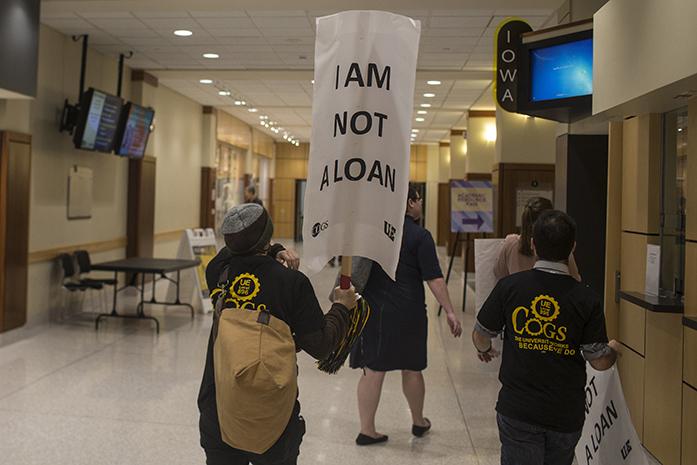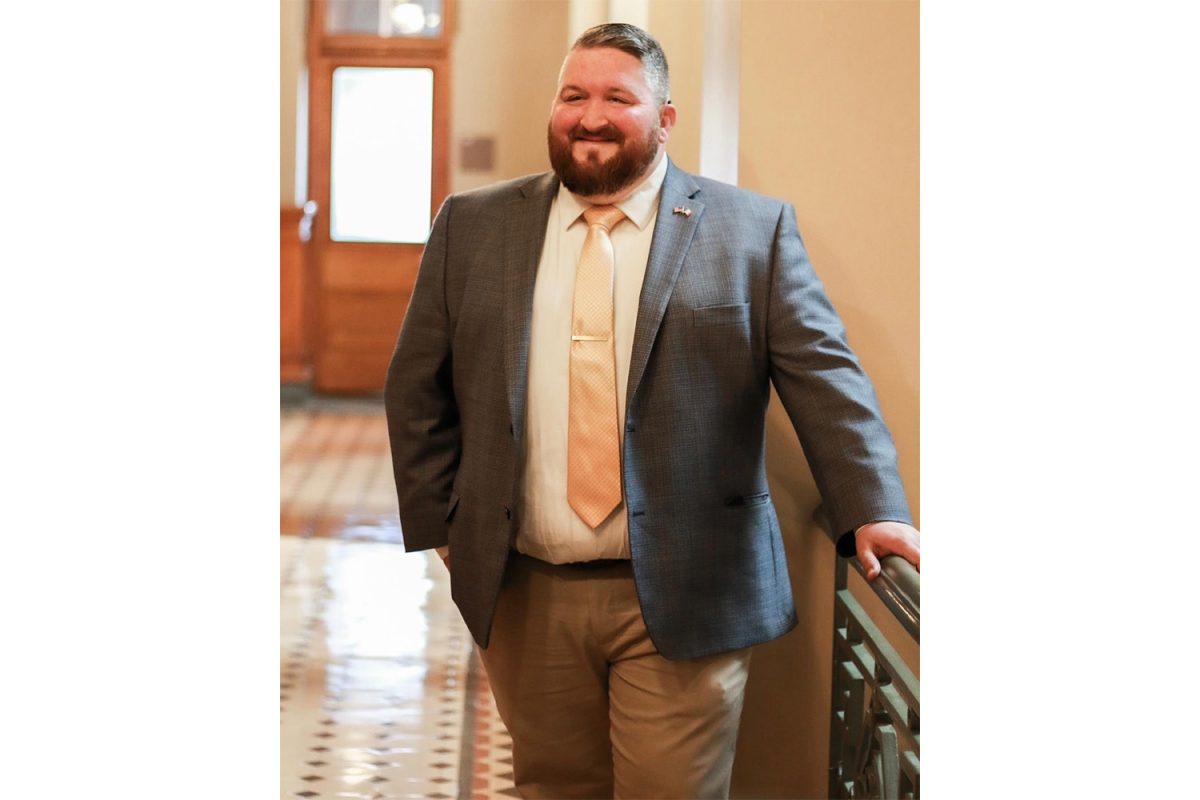By Jason Estrada
The state Board of Regents and the Campaign to Organize Graduate Students met for the first time in 2017 to discuss bargaining.COGS members have been concerned about their benefits being protected after a controversial public-employee collective-bargaining bill passed the Legislature. Gov. Terry Branstad signed the measure into law on Feb. 17.
The bill will take away many of the collective-bargaining rights guaranteed to public employees under Chapter 20 of Iowa law. It will also remove the provision requiring employers to provide proper cause for employee terminations and suspensions.
The benefits in the current COGS contract will remain unchanged until the contract expires on June 30.
In the past three weeks, COGS has asked the regents about the welfare of graduate students, but the union did not receive a response before Tuesday’s meeting.
During the meeting, COGS President Landon Elkind highlighted the miscommunication between the union and the regents, saying graduate-student workers have been treated as “disposable,” making it difficult for them to help with the UI’s growth.
“Making cuts to our benefits is not going to help our university, not going to help the welfare of graduate students, not going to help our rankings, not going to help the undergraduate students we teach, not going to help the faculty we work with,” Elkind said.
Michael Galloway, a Polk Country attorney and lawyer from Ahlers & Cooney P.C., said he received the emails from the bargaining team of COGS regarding the handling of tuition and health coverage.
Before opening discussions with graduate students, Galloway said he wanted to let the university work with the regents to discuss providing information to all of the graduate students on the issue.
A letter from Graduate & Professional Student Government President Josh Schoenfeld and Graduate College Dean John Keller was released to all graduate students stating that they were aware of the situation.
“The university is permitted to declare that it will continue providing full tuition scholarship as defined by the current contract, raise the percentage of fees waived to 50 percent when the current contract expires on June 30, and extend UIGradcare as defined by the current contract for at least the next 18 months until the end of 2018,” the letter read.
The regents issued a proposal at the meeting removing “permissive” subjects of bargaining, “permissive” illegal subjects of bargaining, and setting the basic wage rate.
When a topic is considered “permissive,” the union can bargain about it, but it may not be submitted for an arbitrary. However, the regents declined to talk about permissive topics, even though they still had the power for a discussion.
In the COGS contract proposal, every topic with a strike-through, except wages, was considered a permissive topic.
Gene Elk, the international representative of the United Electrical Workers, said the regents agreed to them in previous proposals. The law hasn’t changed with respect to any of the topics in the contract, which means all of the topics remain unchanged and are still claimed as permissive topics of bargaining, yet the regents refuse to discuss them, he said.
“This is not bargaining in good faith,” he said. “This is using the newfound clout of some law to attack the human rights of workers here at the university.”
Many graduate students in the room asked the regents why they refused to discuss about the permissive topics. Galloway said they weren’t talking about permissive topics of bargaining because they are still in their initial proposal.
“We are going to, as a university, revisit those issues and put them into a policy and face them into the direction that we are heading to,” he said.







